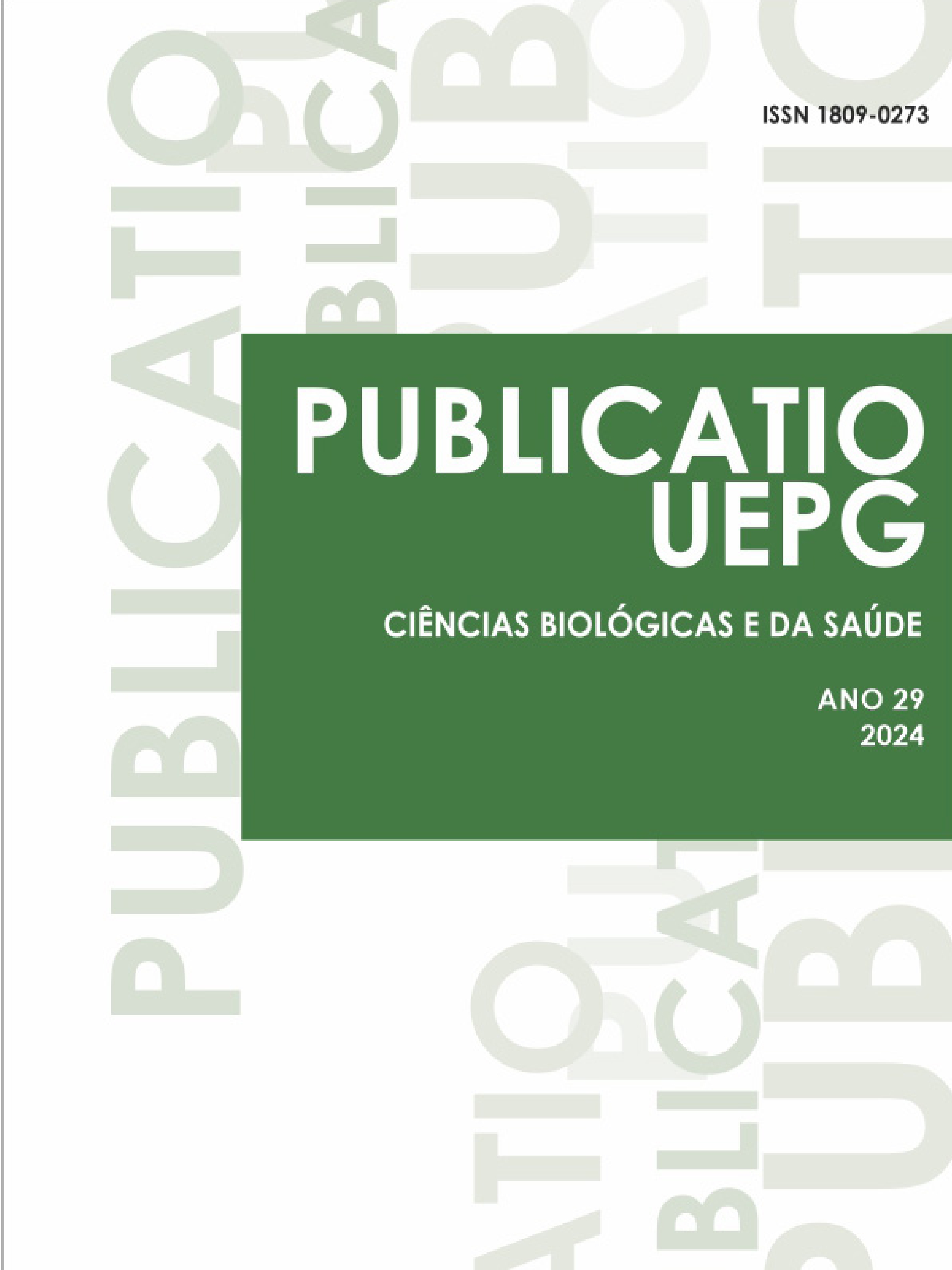RELATIONSHIP OF INTESTINAL DYSBIOSIS AND THE TRIGGER OF RHEUMATOID ARTHRITIS: A LITERATURE REVIEW
DOI:
https://doi.org/10.5212/Publ.Biologicas.v.29.0004Abstract
The comprehension of the correlation between intestinal dysbiosis and rheumatoid arthritis (RA) could introduce new perspectives in the treatment of this autoimmune disease. Through a literature review, evidence correlating intestinal dysbiosis with the triggering of RA was sought. A review was carried out through a search in the MEDLINE/PubMed, Biblioteca Virtual em Saúde (BVS) and Embase databases between 2020/2023, in Portuguese and English, using the methodology was employed, where: P=individuals with RA; I=analysis of intestinal microbiota with dysbiosis; C=analysis of healthy intestinal microbiota; O=laboratory analysis; T=literature review. It was observed that intestinal dysbiosis causes local and systemic immunological alterations and changes in the intestinal epithelium’s resistance to the passage of antigens. The pathophysiological mechanisms are: A) Damage to the intestinal barrier integrity caused by the bacterium Collinsella aerofaciens (C. aerofaciens) in the stage I of RA; B) Decreased metabolism of glycosaminoglycans, bone loss, increase of pro-inflammatory cytokines caused by bacteria such as Escherichia coli (E. coli), Bacteroides uniformis (B. uniformis), Bifidobacterium dentium (B. dentium), Veillonella parvula (V. parvula), and Bacteroides plebeius (B. plebeius) in the stages II
e III; C) In the stage IV, in addition to changes from the stages II and III, there is cellular mimicry provoked by bacteria including Eggerthella lenta (E. lenta), Bifidobacterium longum (B. longum), B. dentium, B. plebeius, and Prevotella copri (P. copri). Managing the intestinal microbiota of patients with RA may be differential in the adequate management of this disease.
Downloads
Downloads
Published
Issue
Section
License

Este obra está licenciado com uma Licença Creative Commons Atribuição 4.0 Internacional.
Esta licença permite que outros distribuam, remixem, adaptem e criem a partir do seu trabalho, mesmo para fins comerciais, desde que lhe atribuam o devido crédito pela criação original. Este posicionamento está de acordo com as recomendações de acesso aberto da Budapest Open Access Initiative (BOAI).


